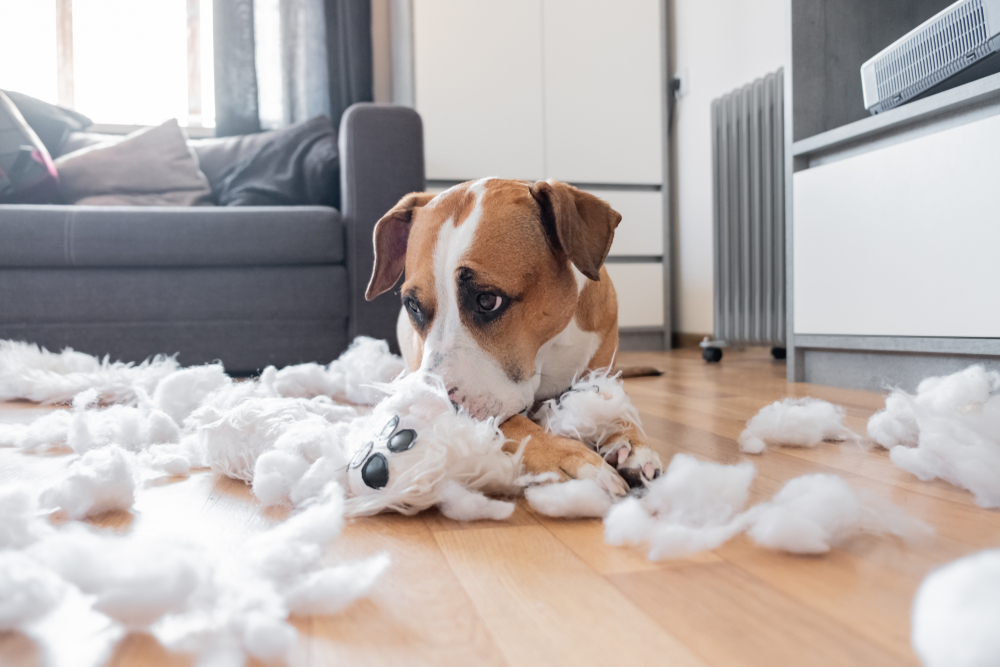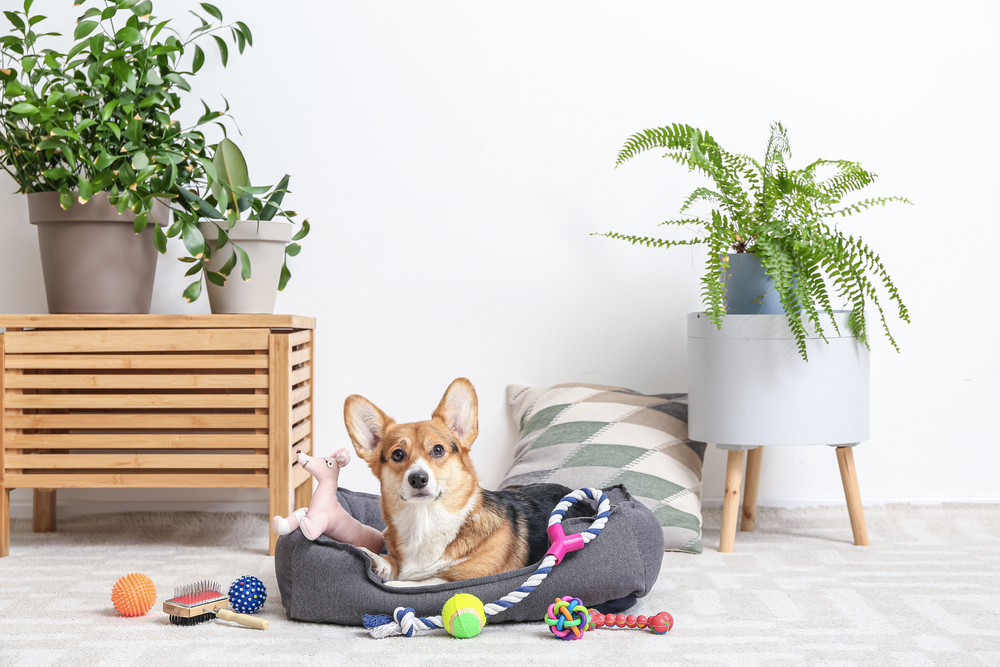The Best Chew-Proof Dog Beds: How to Stop Your Dog from Chewing Their Bed

Do you have a dog that loves to chew their bed? If so, you're not alone. This is a common problem among pet owners. Dogs often chew their beds because they are bored or anxious. There are many different types of indestructible and chew-proof dog beds available on the market, but it can be hard to choose the right one. In this blog post, we will discuss what to look for in a chew-proof dog bed and how to get your dog to stop chewing his bed!
Chew resistant dog beds are great for dogs that love to chew their beds. There are many different types of chew proof dog beds on the market that are tougher and more durable than a regular bed. Sadly no bed is totally indestructible but by buying a bed with chewing in mind you can make your dog beds last as long as possible.
Why Do Dogs Chew Their Beds?
Dogs can chew their beds for a number of reasons including instinct and exploration, anxiety and boredom or from an underlying health condition. The age of your dog can be a big factor and many will grow out of it as they mature, but some won’t. Dogs love to chew and explore so often the poor dog bed ends up as a massive mess across the yard or lounge room.
The best way to help your dog or pup get past this chewing stage is regular exercise and enrichment when you are home. Make sure they have interesting chew toys and activities for when you are not to stop the boredom. It is important to encourage your dog to chew on acceptable, safe items rather than their beds.
It can be frustrating to come home to fluff pulled out everywhere when you have made an investment into their comfort with a dog bed. By choosing a tougher or unchewable dog bed you may be able to get past this chewing stage without tearing your hair out!
Chew Proof Dog Beds
A lot of people think that finding an unchewable bed is hard, but it really isn't. Take into consideration the age, sixe and breed of your dog to ensure you choose the right bed.
Here's what you should consider:

The size and shape
Make sure your pup has plenty of room in their crate or home environment for their dog bed. It's also a good idea to find one with elevated edges or bolsters so they can snuggle in or rest their head. Soft beds with soft fabric coverings can often end up being a chewing victim of a bored dog as they instinctively feel like a soft furry animal to a dog's mouth. Making sure they have suitable soft toys may help with this problem.
The size of the bed really depends on the size and breed of your dog. As your dog grows you may need to buy a larger size. Larger dogs like to spread out so make sure you buy a bed that is large enough for your growing pup.
Material
Indestructible dog beds are typically made out of tougher materials like nylon or canvas. However, some have been known to destroy even these types. If you're set on a certain style then make sure the material is durable and rip resistant.
When choosing a chew resistant dog bed look for a bed that is durable, has reinforced stitching, is weather proof and has a removable cover. These will help with the longevity of your dog's bed. Even the toughest bed can be chewed over time by a persistent dog. Make sure your dog has other items that are safe to chew on and regularly exercise them to wear them out.
Kennel Trained Dog Mats
Many dog mats for kennels or crates are quite durable. They are often made from PVC and wash and clean easily. You can use these dog mats as a bed outside of the crate as well. They are comfortable but less likely to be chewed. They may just help you get through the chewing stage.
Elevated Dog Beds
Having a raised bed can help with dogs and pups that love to chew their beds. They are more of an indestructible dog bed due to the materials they are made from. Most will have an aluminium frame and some sort of tougher canvas like material that isn't really appealing for your dog to chew.
Elevated Dog Beds
Even the most durable bed can fall victim to a dog chewing from boredom or anxiety. Making sure your dog is happy and exercised daily is important to their overall wellbeing and to your wallet! Dogs are pack creatures and like company, leaving the radio or tv on during the day may help ease anxiety of being left alone.
Making sure you provide adequate stimulation for your dog during alone times is important. It is worth talking to your dog trainer about tips and tricks to keep your dog stimulated rather than bored and chewing everything in sight.
There are sprays available to help deter your dog from chewing. These can work well but remember your dog has a strong sense of smell and may not like sitting in a bed covered in a deterrent spray. It is good to spray on spots they are starting to chew. It is worth looking at why the behaviour is happening and making changes for your dog.
With all this in mind you can now feel comfortable choosing the right dog bed for your furry friend.There are some great choices on the market that will be sure to deter even the most persistent chewer!
Remember you want them to be comfortable and safe, so choose a bed that is right for them.
Popular Questions Asked
How do you stop dogs from chewing on beds?
I would suggest getting a dog bed that is indestructible. They are typically made from tougher materials such as nylon or canvas which makes it very hard for your dog to chew on. Another way is to simply just regular exercise so that they are tired when they come home.
Did they make a chew proof dog bed?
There are so many different types of indestructible and chew proof dogs’ beds on the market! They are tougher and more durable than a regular bed. Things you need to consider when buying a chew proof dog bed is the size and shape of your dog, the material – indestructible dog beds are typically made from materials such as canvas or nylon, which is very hard to chew through.
What kind of materials can dogs not chew through?
Most dogs can’t chew through nylon and canvas, but it is possible they can actually chew through that too (with great difficulty).
Why do dogs rip up there beds?
Dogs can chew up their beds for a few reasons. Dogs love to explore and so often, you find a massive mess in your backyard or lounge room. Another reason is some dogs get anxious, or purely, just boredom.